Life with an aggressive Labrador can be extremely stressful and upsetting. In this article expert Behaviorist Sian Ryan looks at what causes dogs to become reactive. And how you as an owner can help to improve their behavior.
Contents
- Signs of reactivity in Labs
- Fear aggression vs frustration
- Predatory responses and medical problems
- How to help an aggressive Labrador
If you love Labradors partly because of their reputation as sociable and easy going dogs, then acknowledging that your own Labrador doesn’t neatly fit that image and is reactive around other dogs, or people, can be very difficult.
It can be made much harder by other people’s responses. They simply don’t believe you when you ask them to call their off-leash dog away from yours on leash, because he doesn’t like other dogs: ‘But he’s a Labrador! They love everyone. Just let him off and he’ll be fine! It’ll do my dog good to get told off by yours’. Sound familiar?
The Reactive Labrador
The reality is that there are individual Labradors who are reactive and use aggressive behavior at times. The reasons or motivations for their behavior will vary. But one thing is true of all of them: aggressive behavior is totally normal. All dogs can use aggression to a greater or lesser extent depending on their individual temperament and experiences. Just like every person can lose their temper or slam the occasional door in frustration.
When working with a reactive and aggressive Labrador the aim is not to suppress the behavior. Instead it is to improve the dog’s self control. You can remove the dog’s need to react aggressively by changing their emotional and behavioral responses to the trigger situations. How we do that varies depending on the likely emotion underlying the reactive behavior.
Warning Signs of Reactivity in Labradors
Generally canine social etiquette is ritualised and aimed at diffusing tension and avoiding conflict; aggressive behavior carries a risk of injury and is therefore a last resort. Dogs will show early warning signs that they are feeling uncomfortable in a situation. These include turning or moving away, yawning, nose licking, and their pupils will dilate. If they are prevented from moving away, then they are likely to increase the intensity of their signals. You’ll hear even more growling or barking.
When these more obvious indications are ignored, or worse punished because they are ‘unacceptable’ to humans, then dogs can feel they have no choice but to escalate. Moving on to snapping and biting to get their point across. If the dog learns that the smaller signals are ignored, or if the intensity of the trigger is too high, then they will respond with the more overt behavior. They will start barking, rushing towards in an attempt to drive the trigger away, snapping and biting.
The aggressive behavior in the image below is cued by the handler. Note the lack of tension across the dog’s forehead and around the whiskers, and the wide C of the dog’s mouth rather than shortened lips. These are a couple of the indications that this is a learned response. I wouldn’t advise ignoring the warning though!
 Fear Aggression in Labradors
Fear Aggression in Labradors
At the root of your aggressive Labrador’s behavior in this context, and probably the most common motivation, is fear: fear of a dog or person approaching; fear of what the consequences might be for their own safety or of losing something they are holding; fear that this is going to hurt.
To reduce the dog’s need to behave aggressively we focus on changing the dog’s feelings about the situation: moving from fear to tolerance and aiming for enjoyment or positive anticipation. If the dog may be in pain then providing suitable pain relief is essential.
Reactivity From Frustration
Another common motivation for aggression, but one that is often mistaken or forgotten, is frustration. A frustrated dog is likely to show fewer of the lower level signals of discomfort. Although lip or nose licks are common in times of conflicted emotions such as wanting to greet but not being able do because of the lead, or a fence.
If your Labrador is bouncing on the end of the lead, weight forward, ears pricked, tail up, and barking with a high pitch then they are likely to be a frustrated greeter. One who may behave more appropriately off lead when they can greet as they like. Many frustrated greeters, however, are socially inappropriate. Rushing at other dogs and ignoring any signs from them that they are less than enthusiastic about the approach of 30kg of happy Labrador. They may well end up being snapped at, or worse, by the dogs they bounce on.
It is not uncommon for dogs whose reactivity manifests first as frustration to develop elements of fear-based aggression after being told off by other dogs for their social ineptitude, leading to considerable conflict of emotions around other dogs.
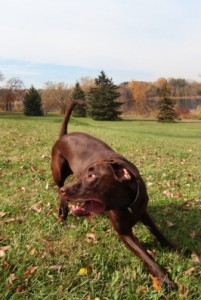
Dogs who become extremely frustrated around other dogs, or when denied things that they want, may well redirect their frustration on to the nearest object they can find. The lead, the person or dog standing next to them, or a toy if one is available. Providing a suitable outlet such as a tug toy is one way to manage the situation in an emergency.
Does Predation Create an Aggressive Labrador?
It is worth mentioning that predation is also a common motivation for aggressive behavior. Labradors are not traditionally associated with catching and killing prey. But actually it is not unusual to meet dogs who are aroused by fast moving objects. Such as bicycles, running people and the more obvious small furry animals and birds in our fields and hedgerows.
Again, if the desire to chase is thwarted then any resulting aggressive behavior may well be frustration-related. This is despite predation being the initial motivation for the behavior.
Is Reactivity in Dogs Medical?
There are several techniques that can be used to modify aggressive Labrador responses. Before considering any of them it is essential to rule out any underlying medical issue. Pain or illness which may be contributing to the aggressive behavior.
Pain is the most obvious cause. So if your dog appears stiff, reluctant to move or uncomfortable at times then discuss this with your vet. It can help to take video of the movement, gait, or situations that concern you. This will mean that your vet can see exactly what is happening, in a way they cannot recreate in clinic. Even if a clinical exam does not identify a source of potential pain it can be beneficial to trial a short course of pain relief. Make sure you note any changes in behavior or movement.
Pain which occurs when playing with other dogs can often be at the root of the onset of dog:dog aggression; equally aggression towards people can be triggered by pain (or the fear of pain) on being stroked, or moved from a resting spot.
As well as pain there are medical issues which in themselves increase the likelihood of aggressive behavior so a thorough vet check is essential. Especially in cases where you seem to have an aggressive Labrador without warning. The behavior has developed suddenly.
Can You Cure An Aggressive Labrador?
In the short term, and to ensure everyone’s safety, the most important thing for a reactive dog is to avoid or change the situations where the dog feels the need to use aggression. This helps them relax and improves their general welfare. They are no longer on edge anticipating something which scares or arouses them. And also stops them practising the behavior that we want to change.
Every time your Labrador reacts aggressively they are strengthening the neural pathway. This makes that behavior more likely and harder to change; it becomes their default and may well be used in situations away from the initial trigger in the future. Aggressive behavior which has generalised in this way is much harder to change.
If your Labrador is reactive towards other dogs on walks, whatever the underlying emotion behind the reaction, then try to find alternative places with fewer dogs and keep your distance by turning around calmly before your dog can react. Or look for a local space such as a riding school or dog training centre you may be able to hire for safe and secure walks.
Reacting To Reactivity
It is important to note that if your dog does react aggressively, whatever the situation, scolding them or correcting them will not help them learn what you do want them to do instead. In fact it may well make things worse, as they then become concerned about your reaction as well as the thing that triggered their behavior in the first place.
Instead, calmly move them further away from the situation until they are at a distance where they can be calm themselves. If possible let the dog look at the scary, or frustrating, thing and reward them with tasty treats for being calm. This also helps them start to change their emotional response; so that the dog that scared them is now associated with tasty treats instead.
Changing your Labrador’s behavior to reduce their reactivity requires time and patience; the longer the behavior has been going on the harder it will be to introduce new, more acceptable, behaviors. We will next take a look at ways of changing emotions and behavior in the medium to longer term.
Why Do I Have An Aggressive Labrador?
Aggressive behavior is a normal part of social interaction. However, when considering your dog’s responses and looking for ways to reduce their likelihood of using aggression, it is also important to understand the potential your dog has to change their behavior.
In some cases the genetic tendency of a dog to be fearful, anxious or easily frustrated, or the length of time they have been practising their aggressive behavior, will limit the progress you can make with them.
You will need patience, and a willingness to accept that their needs are different from those you might have expected when you brought them home. This does not mean that you can’t have fun together; just that your life may be structured differently.
Your Aggressive Labrador
There is an increasing understanding of the needs of sensitive dogs, and many more trainers and dog places offer activities that are perfectly suited to dogs who do not wish to run and play with other dogs, or who would rather have a bit more space around people.
Scentwork and tracking are ideal, as are activity classes which offer lots of different options, from trick training to fun rally.
Changing Reactive Behavior by Changing Emotions
The aim of any technique should be to reduce your Labrador’s need to choose aggressive behavior over a more acceptable (to us) response, such as moving away or performing a different behavior. This should involve acknowledging and working to change their underlying emotional response, not simply suppressing the aggression using punishment.
There should also be a focus on enabling them to manage themselves in arousing situations, so that, in time, they can make the right choice without needing direction for you. Many dogs will also need help to learn the correct social skills around other dogs. Your Labrador is an individual, with individual experiences and genetics that make them unique; their behavior modification plan should be as individual as they are.
Don’t Be Afraid to Ask for Help
Working with aggressive behavior requires expert help to assess, design and support you through the process. Even if you are able to manage the day to day behavior modification training alone, the benefits of working alongside someone who can provide objective feedback, advice on the next steps and support are invaluable.
You may have heard of several popular techniques for changing aggressive behavior, including desensitisation and counter conditioning (DS/CC), differential reinforcement of incompatible behavior (DRI), Behavior Adjustment Therapy (BAT), Constructional Aggression Treatment (CAT), ‘teaching dogs’ and flooding.
There are ethical arguments, claims of efficacy (or otherwise), and debate around all of them, although the least controversial and most widely regarded as effective is DS/CC, combined with DRI.
Desensitisation & Counter Conditioning for Reactive Dogs
Using DS/CC for your fearful Labrador means he will come to associate the presence of other dogs (or people if that is his concern) with the arrival of something he really wants. High value food is usually the obvious choice. This can quickly change his emotions from wanting the other dog to go away to wanting them to be around so that he gets the really yummy treat.
This is usually done in conjunction with DRI so that he can start to learn how to behave appropriately and be reinforced for polite behavior around other dogs. At all times your Labrador should be working at a distance where they are not reactive, and gradually moving closer to their trigger when they are ready to do so.
Any signs of low-level fear or anxiety should be respected and the distance between the dogs increased until the fearful dog is comfortable. To continue working with a dog above threshold is stressful for your dog, counter-productive and risks an aggressive response.
Options for Helping your Reactive Dog
One of the main criticisms of BAT is that it relies on your Labrador feeling empowered, or relieved, by the other dog moving away in response to calm behavior from your dog.
In learning theory terms this is negative reinforcement (i.e. the removal of something unpleasant to increase the likelihood of the behavior happening again) of the calm behavior; if your Labrador continues to offer calm behavior in the presence of the other dog he must have found it reinforcing when the dog moved away. This suggests that he was uncomfortable beforehand, even if only marginally. CAT and flooding are far more extreme in their use of relief as a reinforcer and should be avoided.
Helping Your Aggressive Labrador to Help Themselves
In all cases of aggressive behavior improving your dog’s ability to manage their own behavior through impulse control exercises and by creating default calm behaviors, can be beneficial. It helps to reduce their reactions and teaches them to switch from the default ‘bark at other dogs’ to a default of ‘turn away from other dogs’.
Examples of this include sitting automatically before their lead goes on, or waiting calmly without being told when you open the boot of the car.
This is particularly useful with frustration-related aggression where learning to stay calm when denied access to things he wants is the key skill your Labrador will need to learn before you can work on his manners around other dogs.
As with any kind of training or behavior modification, finding a trainer whose skills and knowledge are suitable for your reactive Labrador is key. You must have confidence that they have a range of appropriate tools available to them, that they are able to accurately assess and respond to your dog and that you would like to work with them.
Slow & Steady Wins The Race
Most cases of reactive behavior take time to improve so you may be spending a lot of time with them and you must trust that they are competent. This article has only scratched the surface of the options and techniques that are available to help you and your reactive Labrador, but good help is out there.
Sian Ryan is an expert Animal Behaviorist based in Cambridgeshire.
With several years of training experience and after completing her MSc, Sian worked as a behavior counsellor and trainer in the University of Lincoln Animal Behavior Clinic, where she was able to apply her MSc research in to Self Control in Pet Dogs to her behavior and training work.
Sian owns and runs the Developing Dogs Training and Behavior Centre in Cambridgeshire, as well as giving seminars and workshops nationally and internationally. Her first book, No Walks? No Worries! with advice on how to maintain wellbeing in dogs whose exercise is restricted, is available now.
The Labrador Site Founder
Pippa Mattinson is the best selling author of The Happy Puppy Handbook, the Labrador Handbook, Choosing The Perfect Puppy, and Total Recall.
She is also the founder of the Gundog Trust and the Dogsnet Online Training Program
Pippa's online training courses were launched in 2019 and you can find the latest course dates on the Dogsnet website

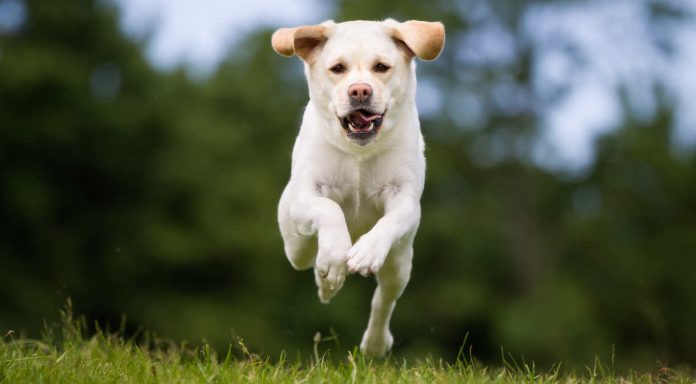
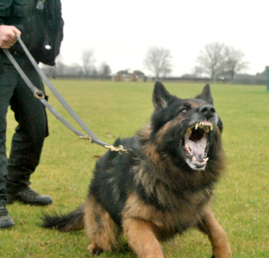 Fear Aggression in Labradors
Fear Aggression in Labradors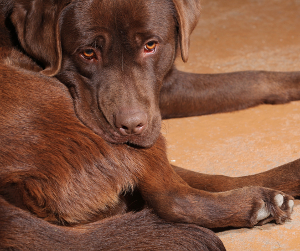
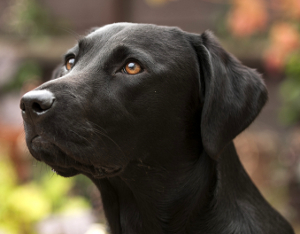



















I have a 10mth old Labrador he is willfull dominant and he continutes to attack me. Lunging at me and biting my arm or hand, times knocking me over. He is defiant and wont take no for an answer. I have tried to play with him anything to divert his attention from this biting. He drops the ball and runs for me jumping at me and usually getting me as he is fast. He barks into my face and wont back off no matter what I offer him its attack. He has had trainers and lots of lessons he is too clever for his own fur. The trainers said how quick he was to pick commands up but this behaviour is causing trouble at home, he has hurt me often, and he is wanting the real bite because he goes in with his teeth and harder and then pulls. I am the one that feeds him, no bite the hand that feeds him. He waits for me on a morning to bite me first thing. I am the end of my rope and I know this one is a rogue dog. Somehow he is not right something wrong we dont know. He is from a breeder of world champion dogs. We dont mind spending on him and he was very expensive as a puppy. He has the best and I know ruined to the core, but he has no respect for me at all. He does wait for me to go in and out first. He refused play time over, that is attack immeditely and will jump at me from behind. He has been put to his cage, no good, slapped him on the face did no good at all, came back at me stronger than ever. No relenting on this dog, he is almost fully grown now and he will take the bite if he can get it. What on earth am I to do with him?
Hi! I understand your frustration . I have a 9 month year old lab. He was insane the first couple of months. But I guess that was normal for labs. People always say they’re easy, family dogs. I think that’s funny after living with one since he was 2 months old until now. He is now starting to resource guard and has bit me and my family members anytime we tell him no and try to take back the food he stole from the counter, or that was ours to begin with. I felt this dog is stubborn. I don’t know what to do?!! Well, recently I’ve gotten him a new prong collar, so I can pull him away from things. Also, I got a gentle leader, it goes around their mouth and also attaches to a leash , so they can’t open their mouth more than to get water or eat. I’ve decided he needs both at the same time. Because he knows how to take off the gentle leader , he’s too smart. So if I attach it to the prong collar and both to a leash he can’t do much. I think these types of dogs need to be controlled while they are young, as mine is almost 75 pounds and growing. I can’t dominate him, he’s too strong for me, I’m 5”3 and 125 pounds.I will say since he’s stopped teething alot of biting has stoped. That doesn’t mean he won’t occasionally come up and bite my leg for attention. Or he won’t snap at me when I try to take away the cats food he stole. Basically, it’s training all the time. Which is hard when you have a life, that you had to live that wasn’t all about your lab. He’s hurt all of us in the family. But, try not to yell back at him or scream. It only makes it worse, trust me I’ve tried it all. They need calm monotone voice and just “no” and to be separated from people into a room by themselves after they bite. They have to be taught consistently and corrected consistently in a gentle, firm way. When other people have corrected him in an aggressive way, it made him scare and he bit the next time out of fear. So have everyone consistent, call, give treats and rewards for any good behavior. Keep a bag of kibble and every time he does anything good reward him. Also, Vicks vapor rub makes them not want to bite you. Rub it all over you. It smells bad to them and tastes worse. So they generally run away everyone they smell it. If I just bring it out he runs. Hope this helps. Good luck raising your furry beast!! Hope we make it through this!
My 6 year old female lab is agressive especially towards men. Is it because there is only me and her at home ? She barks,( no biting) at the vet even who comes to give her shots. He commented that he has never seen such a ferocious lab before . Pl help. She used to be a very docile lab before. So I find this v strange.
We have a 2 yr old female Lab. She can be vicious.
We’ve had her since she was 8 weeks old, she’s been treat extremely well, we altered our holidays so she can come, she loves the sea and the beach.
She gets walks , attention , everything.
But she’s odd, she just changes from a nice dog to a snarling hound of the Baskervilles dog.
I don’t think I’ve seen a more evil nasty dog than her when she starts.
She’s just bit my partner tonight, 10 mm deep gash in her finger.
I cannot work her out, why is she like this ?
Ive had dogs all my life, never had anything close to this.
Im frightened of her.
Hi Brian, it’s importnt to get your veterinarian to take a look at your Lab. Sudden changes in temperament can be associated with illness or pain. I hope you get some help with this. Pippa
I was given a 2 month-old lab-looking female puppy (pure black,) after I had with me a 4-month old tricolor female Shih Tzu. I am not sure of its mixed breed but the features and the characteristics when I searched online matched that of Lab characteristics in physical and behavior. The Shih Tzu takes the lead of course but 4 months after the black puppy grew more than twice the size of the Shih Tzu. More attention is given to the Shih Tzu because of its grooming requirement and competition for attention is always apparent and occasional dog to dog aggression occurred. However, aggression between the two became more frequent and difficult to control. One day the fight ends up injuring the Shih Tzu and the Lab accidentally bitten my hand while I was trying to control them. I have to give up the Lab and return it to my giver. But I am so sad as I am missing my dog so much like the Shih Tzu they are my babies and it hurt me to gave her up and maybe she is hurting too that I have given her up. I constantly ask for her pictures and videos as I am worrying about her so much. This happened a week ago. Maybe I’m better off with just one dog. I feel like a lousy owner.
We have an 18 month old fox red labrador. We have 3 children in the house and she is amazing with us all. But she will not tolarate any other children or dogs she growls snaps and barks for no reason. We have had her from 8 weeks old. No bad situation has occurred at all during the past 16 months. Why all of a sudden is she aggressive. Please help
Hi I have a year and 4 month female white lab. We also have a blue healor, a poodle mix, 2 chihuahuas and a Datsun dog. The lab has been goofy, wonderful, does not show aggression when eating, however lately she has shown aggression to the smaller dogs. She likes me, and the family. Recently when I go outside in our acre yard, she is good with me, however she has got mad and attacked the poodle without warning. She has knocked him on the ground, and is aggressive attacking him. I had to stop her twice for this behavior. She also shows aggression with the other small dogs, not the blue healer, and both are females. She has not bite the poodle, but has hurt him where he is scared, as well as the others. What can I do to stop this aggressive behavior? Please advise.. and thank you.
Hi!! My lab sounds exactly like yours. Has been around our dogs from day 1 & suddenly very aggressive. Have you found anything to help???
I have a 2 yr old male yellow lab. Out of nowhere, he growls and snaps at people, even people that he used to like and have no issues with, snaps and has also almost “taken” my husband at night when coming back into the room. All of a sudden tries to snap at me when trying to clip his nails. Any suggestions?
Please help, I adopted a yellow lab,at the local shelter. Sweet, intelligent , fairly good behavior. Anyway, I live with my brother, and he fosters dogs, mostly boxers. Molly, my lab, has been very good until about 3weeks ago. The oldest dog, a female boxer, close to 13 years old, has some medical issues. And for some reason, my Molly, has attacked her, 3 or 4 times in the past month. I have to watch her like a hawk. The other thing is that they adopted a terrier mix from a rescue, he’s her best friend except, he tears her collar off , and if she’s not wearing one he runs along side of her and bites at her neck. Crazy, I know,could the frustration and stress of this puppy chewing on her all the time, cause her to attack the senior dog that has a problem moving, health problems. And how do I keep her, Molly from attacking her. Thanks for any help.
I’m so sorry to hear that. Labs don’t know their own strength, and I’m sure it’s not your fault. It’s hard to raise dogs, not like in the movies or pictures they post every where. Did you have to give away the lab? Could you possibly have put a gentle leader around he is mouth with a prong collar to control him/her? What was the fight about , attention or food? If it’s attention I think all animals crave to be the center of attention. Is the shi Tzu allowed to do more barking and scolding to the lab? Because maybe the shi tsu is smaller and people don’t find them threatening so they allow them to tear the lab anyway. And, when the lab reacts the lab gets punished for being bigger and having a bigger bite. I’ve been bitten so many times by my lab. Sadly. But, I’ve always loved him and tried to be a better owner , dog /mom. Some days are easier than others, but raising row dogs isn’t easy. Especially if they fight. You could put them in crates next to each other. And, take them on a walk to get her. No toys nothing to fight over. Just let them play. They will be less agressive. It won’t be perfect, but an improvement. If you can’t get the lab back, I hope he or she is in a safe environment that was better than yours. If not I’d go get him;)
My 4yr old Labrador is so obsessed with me that lately he is attacking my 10 year little dog. I love both my boys but my Labrador is giving me such anxiety that every time he looks at my little dog I think he’s going to attack. I recently got bit really bad I had to go to the doctor for antibiotics. I’m just at my wits end not knowing what I can do to fix it. Please help me
I love this article. I’m not sure how I didn’t find it when I was desperate for a solution back in April. I really just wanted to comment here to say that all of the suggestions in this article do work, but you have to be patient and get over the whole “but labs are supposed to be nice” issue. My female black lab is crazy smart, well-trained, obedient and successfully socialized with pretty much anything you can think of. But, just after turning 2, she started showing her teeth and snapping at random people. After a visit with her trainer we determined that she’s actually scared of people and being touched (still don’t know where that came from) and for some reason felt she had to stay to be pet. For seven months we have eased her closer to people using treats. We have learned to read her stress indicators and immediately intervene to calm situations. I have learned to get over being embarrassed about my unfriendly lab and be blunt with people on her behalf. We’ve also successfully taught her to leave when someone reaches for her and she doesn’t want to be touched. We haven’t had a single incident in five months and we’re both so much happier. It can be done…see a professional, be patient and you’ll get there.
I have a 5 year old black lab mixed and a 13 year old golden. Recently, the lab has started to show signs of aggressive behavior towards the golden just at random times of the day for no reason. They could just be sitting in the room and the lab will all of a sudden be growling in the golden’s face, snarling and barking and looking like she’s going to attack her. It’s very scary and we’ve never seen her act this way before. But then it passes and she’s fine with her. It’s just so odd. We’ve had the lab since she was a 10 week old puppy so she grew up with the golden her whole life, they are not new to each other. I’d appreciate any input. Thanks.
my black lab will growl at my 5 year old nephew when he comes too close to him but is okay with my 8 year old nephew. I also tried taking him to the dog park and there were other off leash dogs there and so i decided to keep him on the leash to make sure he didn’t attack but then another black lab walked up to us while his owner was no where in sight. and my dog started growling, barking, had foam around his mouth (but he doesnt have rabis) and if i wouldve let go he wouldve probably killed the dog and the dog didnt even do anything he just walked up to us. and it kinda upsets me because i thought they got along great with kids and other labs. someone please help what can i do?
My labrador is 10 years old. She use to belong to my son. I just got her 5 months ago. My problem is her aggression when I want to feed her. She starts jumping up at me and growling and barking. I have tried to make her sit before I feed her so I can place her food in her dog dish. She tries to also nip at me. What can I do to stop this.
Hi! My 5 year old lab has recently started randomly growling at my husband when he goes to pet him. Never snaps, lunges or does anything else at that time, but we’re concerned. He’s always been one to growl at someone too close to his food, but this behavior is completely new. He does have occasional seizures and we are wondering if that could cause random behavior issues. What should we try with this behavior and would hand-feeding be a good idea to break the food related issue? Thank you!
I am having issues with my lab who is 11 months old she is very aggressive towards me i am the one who walks her every day and feeds her takes her to training etc but she seems to be dominant over me i was told to if she gets aggressive to get down and put her on her back and be strong with her but this has created a very bad issue. most days she is lovely and i felt we were moving through a positive stage i am working hard and putting positives in place but! I feel she may be afraid of me but i do everything positive to her she basically is very unhappy with me. She was very aggressive today i dont know why as she had a bone but tail was wagging i went outside and talked to her like normal and patted her and then she just jumped at me and started biting and it was quite horrific I had no warning like no growling so unusual as i can touch her food etc normally.as i was unable to move and get inside. i am in shock that she reacted this way, i went out again after awhile and she did the same thing! Not to sure what i should do but honestly if it continues i think i will have to get rid of her!
You could be describing my 11month old lab collie cross. He’s made so much progress in the last few months but he really turned on me, bit me and shredded my clothes earlier this week. I’m hoping it is just a phase. How did your dog get on?
I think it’s resource gaurding, aka food aggression. Very common. My lab does it. She thinks since you dominated her you’re trying to take her bone and she’s telling you No! Basically it’s takes time to teach this. Look up resource gaurding and try to be gentle and from with her. Get a prong collar and a gentle leader and combine them. My suggestions.
Hi, My male yellow lab is 2yrs old next month. He has always been food aggressive but in the last 2 weeks he has been charging me and only me for no reason(he is happy a playful with my 8yr old, 5year old and husband). The works-teeth, hackles, growls, snaps, tail straight up. He isn’t desexed, I’m now thinking is it too late to desex him and I also wonder would it even make a difference.
Hi Kristy, Have you spoken to your veterinarian? I highly recommend asking for a referral to a qualified canine behaviorist who uses positive reinforcement techniques. In the meantime, if you aren’t already doing so, do ensure he is not allowed with your children unsupervised until this is resolved. Best wishes, Lucy
We have a 6 month old Chocolate . I’m not sure what happened in her house before we got her at 10 weeks. She used to attack us when she didn’t want to come in, while she was eating, going in the crate etc. Now it is more like a toddler showing teeth and growl snapping anytime we try to put her in the crate or pull her away from our older dog when playing gets a little rough. I don’t know how to stop this besides time out. HELP
We have a 5 year old Labrador who is from the guide dog breeding programme (so really well trained and very placid and lovable towards humans and other animals alike)
2 days ago we were walking with her and she saw a Griffin Terrier and attacked it – completely unprovoked. It scared us all as she has never, ever done anything like that before (usually she is very submissive). Today we were out walking again and she spotted the same dog at a distance and took off and did it again!
I am absolutely flummoxed and have no idea how to handle this situation.
Any tips or ideas would be greatly appreciated.
hi I have a mixed Labrador with german cheaperd hi is 5 months old ,I am facing a problem with him .
when he is eating no one can pass near him even me he barks and sometimes he attaked me not all the times,
when he is done with the food all goes back to normal .
thank you in advance
This is the article you need Elias https://www.thelabradorsite.com/how-to-stop-your-dog-growling-over-food/
Hi I have a 4 yr old chocolate lab who grew up with two other labs since they died he is aggressive with other dogs. He is absolutely fine once he knows them he will allow them to eat out his bowl and sleep in his bed. But if a dog he doesn’t know comes over to him he will sniff them then sometimes attack them he is so unpredictable sometimes he will play with them just depends how he reacts. He is brilliant with people and children and very well behaved it’s so distressing because I panick every time a dog comes over because I never know how he will react he will play lovely with any dog once he has spent time with them and gets to know them, I don’t know what to do with him
We have a black lab named Hannah. She is very lovable to us, but aggressive towards my 3 yr old nephew and sister in law. He hates the mail man. My daughter was bending over to put the dog on her lead, when Hannah bolted out of her grasp to the front where the mail man was. The dog was snarling and growling. She has bit my daughter for no reason in the past. We tried everything. We play with her a couple times a day outside, she is well loved.. but we are talking about getting rid of her. We cannot get a lawsuit or fined.. and thats what is going to happen. Any helpful ideas? The litter we got the dog from.. well there are other dogs in the same litter that is acting the way Hannah has been acting. Is this genetics?
Hi Nikki, sorry to hear you are having such problems. There are several causes of aggression, and it isn’t possible for me to speculate whether or not your dog’s behaviour is hereditary. It could be that the puppies in the litter were all poorly socialised.
You need to focus on your dog and what to do next. The first step is to get her to a vet. Aggression can be caused by a physical illness and you need to rule this out. Then ask your vet to recommend a behaviourist who will visit your dog in your home. They will observe the dog and advise you as to what you should do.
Hi,
My 2 years labrador is very aggressive, Even he can hurt us sometimes with his aggressive behavior and also put some scratches on my arms. Please let me know what to do in this situation. Is he is looking for mating OR else.
I have a black lab that’s aggressive a to nearly every dog, on the lead head will growl & bark aggressively & lunge at them, yesterday he attacked a neighbours dog & it wasn’t pretty, he’s pulled me over before, I’m worried he is going to hurt someone’s dog he is so nice in every other way towards people & children, very freindly & playful, I don’t know what to do with him & im considering getting rid of him if things don’t improve 🙁 I found out he was badly attacked twice as a puppy before we goot him, any help would be great.
I am sorry to hear you are having trouble with your Lab. I recommend that you find a qualified behaviourist to assess him and advise you on the best course of action. Your veterinarian should be able to give you details of one in your area. Make sure that they use positive reinforcement training methods and not punishment, as this can make the problem worse. Best wishes, Lucy
Have you tried taking it to a trainer to counter conditioning / desensitize him or do it yourself if you know how. Usually that will work with consistency and positive reinforcement through time. Check out youtube I know there are some videos on this I can’t say they are all valid so please use discretion.
I need help, I have 10mo labrador male. He is great for the most part but recently when we go on walks he does not want to come in. He gets aggressive where he will strike at you or he will pull away hard. I love him but he has bitten me more than once. I do not know what to do. I don’t want to give him up but it seems like that may be my only option.
I have a lab I rescued at 10 weeks. VERY ball driven! Once he hit a year he started fights at the dog park over the ball. We removed ourselves from the park and got a trainer at 18 months. He learned the ball wasn’t always his, but now reacts to dogs period. He was playing with a dog his know since we got him the other day….running around. Once the play went to a boxing type move he lasted about 30 seconds. There is no warning!!!! He just turns and starts fighting and won’t stop until I pull him off.
Iam just experiencing the Same thing with my Lab cross ? it’s mainly sticks, but she’s got obsessed with balls also and has started a reaction too. Shes loves to play and is extremely over friendly with all dogs, even if there aggressive she doesnt react..
But when u have a stick or ball its Turning her aggressive towards other dogs if they come close.. I also had to pull her off another dog last week and today I senced the same thing and removed her. It’s really worring me as we go to the dog park everyday day since she was 8 weeks old..
Why is this just started to happen ..
Have you had any luck with the training?
our nine year old choc lab Charlie, see s other dogs,his tail goes up and he runs towards the other dog, growling and snapping, frightening the dogs owners, then when the dog submits he starts running chasing and playing with the dog, this isn’t every dog but about one in eight.
I have a 4 yo Labrador Retriever. He is extremely friendly towards humans. He tends to get a bit aggressive in dog parks especially when hes not on a leash. He seems okay with other large breeds, its the smaller ones that seem to bother him. He tends to project that predatory instinct of a dog with small breeds.
I am quite confused by this behavior of his, as he is otherwise a very calm and friendly dog. Would really appreciate some advice on how to make him stop doing this.
Thanks.
Many dogs act one way towards humans, and act completely different towards other dogs. Many dogs that are calm and friendly towards humans, are aggressive towards dogs.
There is nothing to be confused about, as it is, sadly, a pretty common behavior.
You should find a good behaviorist who can help you in person. (yes, sadly that can be expensive).
And go only to dog parks that have separate areas for large dogs and small dogs. Don’t let your dog interact with small dogs unless there is a fence between them, or your dog is wearing a muzzle.
Also, give him structured exercise by walking him on a leash as much as possible every day. Don’t rely just on dog parks for his exercise.
Yes I’ve found my 2yr old lab to be over excited around other dogs. She is fine with big dogs and is very submissive straight away but around small dogs often chases them and then becomes quite vocal and can be agressive.
Is it possible she is just a dominant female around smaller dogs and just doesn’t like them?
I have 2, 3yr old rescue labs/staffy. One doesnt know many commands but is loving. The other knows lots and is also very sweet. The second one is horrible on walks. We can barely hold him back. As a pup he was happy to interact, but was often bitten because he was a bit too ‘intense’… now the other dog is starting to copy this behavior. Of jumping/pulling on the lead and wanting to go for other dogs… what can i do?! We have tried treats and they arent interested when they are walking. I want to be ae to feel happy on my walks with them but my anxiety goes crazy and i can guarantee they pick up on it! Help 🙁
If you give treats when your dog is behaving badly, your dog will feel like you are rewarding him for the bad behavior. Treats only help if you give them when your dog is being good.
My lab- pit-chow mix was the same way now at 11 yrs old she will carry her leash and totally ignore another animal or stops and sits and focuses on my face. I bought a front hooking harness and thats what she went for walks with while I retrained her. When ever she tried to go after another dog 1 she was not able to pull in front of me with that harness and 2 I would make her sit with her back to the other animal and tell her focus and point my finger to my nose even turning her face and saying ignore then focus again I would even do the same in the house when shed get to excited about visitors. I also gave her jobs to do at home if I dropped something I’d have her pick it up and give to me let her carry the mail in and even carry grocery backs from the car to the house and it calmed her right down she just wanted something to do. It has also come in really handy now as well since my health is failing and she really does help me in big ways now as well
My 2year old yellow lab has bitten me on the hand. She is a rescue dog and was found as a stray. She is perfect in every way with a lovely calm temperament. Except for when she wants to play with the ball. She gets very over excited as soon as she spots it and jumps up and pesters until she gets the ball. She jumped up and bit my hand trying to get the ball. She doesn’t do this with food and doesn’t Jump up at other times. How can I stop this?
Our lab has been crate trained.. (5 yrs old)..spends some time outside in a kennel. Lately he is refusing the crate..and chewing his way out of the kennel. Can’t figure out what has happened..he is not a barker. He whines. Leaving him loose is not an option, we live close to a highway. And he gets into and chews everything..can’t stand seeing him unhappy. Do you have any suggestions. .thanks
Hello I have a chocolate labrador who is 2 years 10 months. I am pregnant 28 weeks and my dog has started becoming aggressive towards me. This is only when he is around me by himself. I have also got spd so finding it hard to control him and take him out so other family members are taking him out on walks and I am still just not as much. He won’t seem to settle during the day and constantly barks and growls and gets very excitable trying to chew his bed and has gone to bite me on several occasions. We don’t want to sell him but getting to the point where we might have too if this doesn’t stop as I am starting to feel scared. Thanks, Nicola.
Hi, Nicola. I know that your post was written several months ago, and you must already have given birth by now. Hopefully your situation with the dog has been resolved.
I wanted to say, though, that I think in your position, the best thing to do would be to get rid of the dog. Perhaps find a home with owners who are aware of the aggression he was displaying, and who are willing and able to deal with it.
Most dogs, when their owner becomes pregnant, become protective of her, not aggressive towards her. After all, their owner is the person a dog loves the most in the whole world. The fact that your dog became aggressive towards you, whom he should love so much, makes me scared of what he might do to your baby.
For your baby’s safety, you need to find a new home for your dog.
Again, perhaps this matter has already been resolved, and I hope everything turned out well for you and your baby.
Hello. I bought a female labrador a couple of weeks ago. She’s nearly 2 months old. She is quite active and playful but many a times, she has tried to bite the family members. She is pretty aggressive towards her stuffed toys. We left her in our grandma’s house two days ago where its more spacious for her and we have another dog there, a male 11 year old spitz I guess. My mum informed me that she has tried to attack him several times and he is scared of her and refuses to come out of the house. If you could help me with what to do, I’d be truly grateful. Thanks a lot.
Hi, this is the article you need: https://www.thelabradorsite.com/help-my-labrador-puppy-is-aggressive/
I have a 3yr old black lab. He has aggressive problem with stranger men the most. I’m concern cause he snaps at there ankle. What can I do? I don’t want to have to get rid of him.
I have a 4.5 year old lab that we rescued from a shelter a few months ago. He gets along great with my other dog but he occasionally has aggression issues with toys and food. I can take his food dish away while he is eating without him reacting but if he gets a hold of human food and you try to take it away he growls and snaps. He also does the same thing if you try and take a toy away from him. It’s not all toys just random ones. I don’t know what to do with this behavior because he is such a sweetheart.
This article will help you Rebecca https://www.thelabradorsite.com/how-to-stop-your-dog-growling-over-food/
Hello,
I am becoming increasingly concerned about the behaviour of my 4 year old Lab. He is my 4th Lab, but has started to display some aggressive tendencies towards other dogs which I have never known with my previous dogs (which have all been much more ‘typically labrador’ in their behaviour).
I have had him since a puppy, and his behaviour with other dogs has never been very good – generally he either ignores them completely, or tries to mount them. If a dog is aggressive towards him, he does tend to snarl/snap back.
However, just recently, there have been occasions when, on a walk off his lead, he has gone running directly at other dogs, snarling and barking seemingly to provoke a fight, even though those dogs have not shown any aggressive or threatening signs towards him. It is most upsetting for the other dog owners as well as me, and is certainly most un-labrador-like.
My dog is a pedigree dog, gets regular, long walks and is very fit and healthy in all other respects. He attended puppy classes regularly until about 18months old, and was spayed as a puppy.
What can I do to stop this, seemingly increasingly aggressive behaviour? Any suggestions would be gratefully received.
Thank you.
Hi I hope you don’t mind me asking but did you get any help with your Labrador, my 2 yr old fox red castrated dog is doing the same things as your dog, I’m at my wits end now, my husband said if our lab does it again he will have him put to sleep as he doesn’t trust him now.
I have a 3 month old black lab mix with husky, and she gets aggressive when people pet her, she lunges towards my other chihuahua and I don’t know how to redirect her aggression when I try to pet her or grab her ….please help
Hello, my name is Anne Ochoa. A week ago, we adopted a 3 month old black lab mix. She looks like a pure black lab so I’m not sure what her other breed is. The majority of her physical and emotional characteristics are those of Labradors. My question is this. She is very afraid of my teenage son (18) and other young men. She loves my husband and older men and loves females. What are some things we can do to help her bond with our son? He is extremely sensitive and hurt because of her behavior, however, we remind him that she is a rescue. We are trying to set a routine with him using rewards, treats, calming and soothing methods, etc. Any suggestions would be greatly appreciated. Thank you in advance for any advice you can give me.
Four Ochoas who love their SanDie (she’s very laid back like San Diego) 🙂
I hope this will help,we had a black lab pup some years ago who was fearful of my husband,the pup had been reared in a female only household.A relative of mine who was very natural with dogs suggested my husband to rub some raw meat under his armpit , let the dog sniff and then eat the meat. we gave it a try and it actually worked.The dog went on to be my husbands best friend for many years